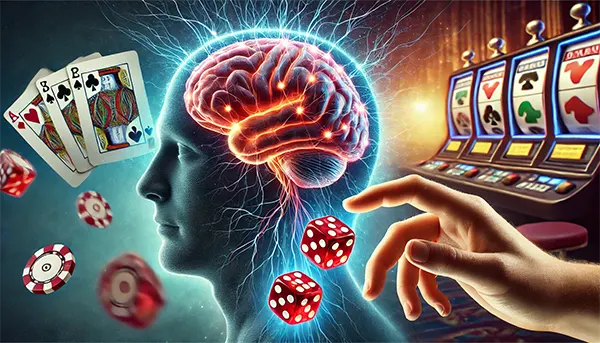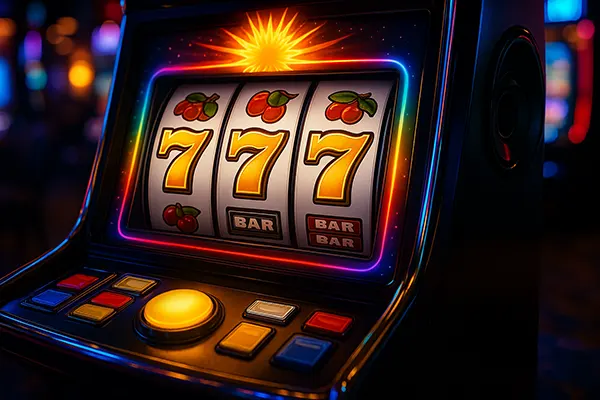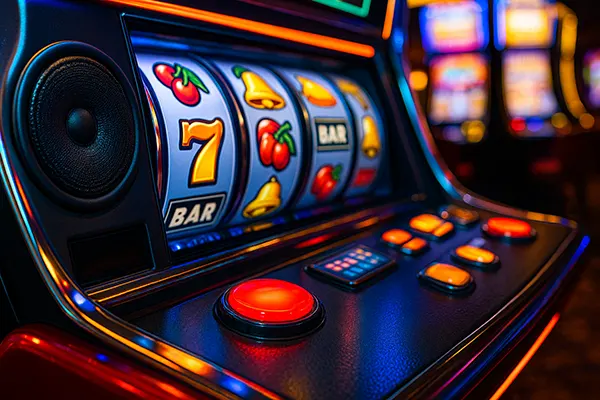
How Gambling Affects the Brain: Research and Scientific Facts
Gambling has long been a topic of interest for neuroscientists, psychologists, and the general public. While some see it as entertainment, others view it as a risky activity that can lead to addiction. Modern research has provided substantial insights into how gambling impacts the brain, revealing both the psychological highs and the potential dangers. This article explores the neurological effects of gambling, differences in brain reactions between experienced and novice players, and how responsible gaming can help prevent addiction.
Why Gambling Triggers a ‘Dopamine Surge’
The human brain is wired to seek rewards, and gambling directly stimulates the reward system. When an individual places a bet, their brain releases dopamine, a neurotransmitter associated with pleasure and motivation. This release is similar to what happens when eating delicious food or engaging in exciting activities.
However, gambling triggers an unpredictable pattern of rewards, which enhances its addictive potential. Unlike natural rewards that provide consistent pleasure, gambling operates on a variable-ratio reinforcement schedule, where wins occur at random. This unpredictability intensifies the dopamine release, making the brain crave repeated experiences.
Studies using brain imaging techniques have shown that the anticipation of a reward in gambling can be as stimulating as the win itself. This means that even when players lose, their brains may still experience a dopamine rush, compelling them to keep playing in pursuit of another win.
How the Brain Adapts to Gambling
Over time, frequent gamblers may experience changes in their neural pathways. The brain adapts to repeated dopamine surges by reducing its sensitivity to the neurotransmitter. This results in a need for greater stimulation to achieve the same level of excitement, leading some individuals to increase their bets or gamble more frequently.
Additionally, the prefrontal cortex, which is responsible for decision-making and impulse control, can become less active in chronic gamblers. This diminished activity can make it harder for individuals to stop gambling, even when they recognize the negative consequences.
These neurological changes mirror those observed in substance addiction, reinforcing the idea that gambling disorder should be treated with similar medical and psychological approaches as other forms of addiction.
Brain Reactions: Professional Players vs. Novices
Not all gamblers respond to gambling stimuli in the same way. Research comparing professional players to inexperienced gamblers has highlighted significant differences in brain activity and decision-making processes.
Experienced players tend to have greater cognitive control, as seen in increased activity in the prefrontal cortex. They are better at managing emotions and resisting impulsive behaviour, which allows them to make more calculated and strategic decisions rather than relying on gut feelings.
In contrast, novice players often exhibit heightened activity in the amygdala, the part of the brain responsible for processing emotions, particularly fear and excitement. This increased emotional response can lead to impulsive betting and a greater likelihood of risky decision-making.
Role of Experience in Gambling Outcomes
One of the key differences between seasoned gamblers and beginners is how they react to wins and losses. Professional gamblers tend to regulate their emotions better and avoid ’tilt’—the state of making irrational bets due to frustration or excitement.
On the other hand, novice players are more prone to the gambler’s fallacy, a cognitive bias where individuals believe past outcomes influence future results (e.g., thinking a loss streak means a win is “due”). This faulty reasoning often leads to financial losses and increased risk-taking.
Additionally, professionals engage in risk assessment and employ strategic betting methods, such as bankroll management, to minimize losses. These skills allow them to sustain longer-term success compared to casual or impulsive players.

How Responsible Gambling Prevents Addiction
While gambling can be a source of entertainment, it also carries the risk of addiction. Implementing responsible gambling practices is essential to maintaining control and avoiding harmful consequences.
Setting strict financial limits is one of the most effective ways to prevent addiction. Players who determine a fixed budget before gambling are less likely to chase losses or spend beyond their means. Many online casinos now offer self-exclusion tools that help users take breaks from gambling when needed.
Another crucial aspect of responsible gambling is recognizing the warning signs of problematic behaviour. Symptoms such as gambling to escape stress, increasing bet sizes to recover losses, or feeling anxiety when not gambling are indicators that professional help may be required.
Tools and Resources for Responsible Gambling
Many organisations provide resources to support individuals struggling with gambling addiction. Programs such as GamCare, BeGambleAware, and Gamblers Anonymous offer counselling, helplines, and self-help strategies to assist those in need.
Casinos and online betting platforms have also introduced tools to promote responsible play, including reality checks, deposit limits, and self-exclusion options. These measures aim to encourage healthy gambling habits and provide intervention before addiction takes hold.
Ultimately, understanding the effects of gambling on the brain, recognizing personal limits, and using available resources can help individuals enjoy gambling responsibly while minimizing the risk of addiction.



